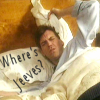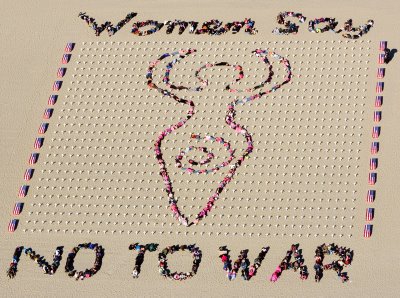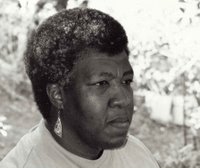3.21.2006
A Little Lenny Bruce
He celebrates the importance of the First Amendment and ridicules our use of it. We can deny others’ gods, say “A fat slob, the Buddha” or “go in front of a synagogue and sing about pork.” We can disrespect any group we want, “Cause that’s our right—to be disgusting.” After all, “[T]he reason we left England was just for that right, to be disgusting.”
But obscenity is about arousing the “prurient interest,” about turning people on. And, Lenny says, “The prurient interest is like the steel interest. What’s wrong with appealing to the prurient interest? We appeal to the killing interest.” And, more, he notes the classism here. If I write about trailer trash having vivid, graphic, sloppy sex, then that’s obscene. But if I’m “classy” about it, if I know how to “handle” the sex scenes with artistic beauty (he talks about Lady Chatterly's Lover as an example), if it emerges as “legit” art, then I’m far less likely to be prosecuted. In Lenny’s words, “So, in the opinion of this court, we punish untalented artists.”
3.18.2006
You and Me and ADD Makes Three
First, in diagnosing ADD via the DSM (huge encyclopedia of psychological disorders put out by the American Psychiatric Association – aka doctors not psychologists), the criteria are so broad (everything from lack of ability to concentrate to disliking work tasks) and the determining degree so vague (one has to display only “some” of the characteristics “some” of the time), that every single kindergartener in this country could be aptly diagnosed with ADD. Add to this the fact that many medical doctors with no psychological training are diagnosing the disorder and prescribing Ritalin and you have, in my opinion, a recipe for self-made epidemic.
My conclusion has caused me conflict, to be sure. For example, Chad and I have dear friends who assert that both father and son have ADD and the son is now on Ritalin and they are seeing a marked improvement in his ability to concentrate and succeed in school. I do not doubt their results nor their frustration with their son’s past behavior and difficulties. Who am I to second-guess what they need to do for their family?
Yet, I do have concerns. Chad has cited studies that show that therapy works for this type of disorder/situation. We both have more faith in therapists/counselors than medical doctors. And now I’ve found a way of seeing ADD that reduces my conflicts and eases my mind. As Morford puts it, we are an ADD culture.
With the demands for and pleasures of constant multitasking (like right now I’m on yahoo messenger chatting with a friend, talking now and then to my son about a videogame he’s playing with his dad, writing this blog entry, and finishing breakfast), ADD is a treasured commodity. An ability to concentrate on one thing too long would be excessive, a waste of valuable time that might always be stuffed far more full if we just try a little harder. I remember an NPR editorial a few years back that talked about our being a culture more invested in seeming busy than in actually doing work (or doing pleasure). His ultimate example was people on cell phones in public bathrooms, wanting others to hear them as they make important business decisions while they piss. From the critical vantage point of this moment, the commentator’s description is positively naïve. Everybody not only has a cell phone and uses it constantly, but increasingly few people aren’t willing to talk while on the pot.
 If we are, indeed, an ADD-inspiring culture, then when numerous adults and their numerous children tell me they have ADD, I have a new lens through which to see it that keeps me from being at odds with their definitions and even their cures. After all, as Joshua Foer in “The Adderall Me: my romance with ADD meds” makes plain, ADD drugs can help everyone to better deal with a culture that increasingly insists on ADD personalities to meet the needs of our ADD culture.
If we are, indeed, an ADD-inspiring culture, then when numerous adults and their numerous children tell me they have ADD, I have a new lens through which to see it that keeps me from being at odds with their definitions and even their cures. After all, as Joshua Foer in “The Adderall Me: my romance with ADD meds” makes plain, ADD drugs can help everyone to better deal with a culture that increasingly insists on ADD personalities to meet the needs of our ADD culture.Nothing like a political/sociological perspective to shed light on the medical/psychological, eh?
3.17.2006
3.12.2006
Religion, Science--the Whole Megillah
Discussions of “Creationism,” that frightening pseudo-concept that reminds one of Stephen Colbert’s “truthiness” more than of a logical and meaningful combination of religion and science are more disturbing than I can say as a college professor. It seems clear to the point of inarguable to me that what science intends and how science works is incompatible with the concept of religion. Religion and science are, in intent and usage, often simply antithetical.
Take the scientific method: a systematic pursuit of knowledge involving the formulation of a question or problem, collection of data through observation and experiment, and the formulation and testing of hypotheses. Religion is simply not interested in data collection, experiment, and testing, except metaphorically or philosophically (and not even that if we’re talking fundamentalism). Religion is about taking things on faith. So, we plain and simply cannot bring religion into the science classroom. It just won’t fit through the damn door.
This said, science should not be taken for/as religion. There are questions science is entirely uninterested in, ill-suited for, or just plain incapable of addressing. Chemistry lab can’t help me answer “Do human beings have a soul?”, nor need it do so. If science becomes the only valuable way of knowing, we place equally artificial limits on ways of seeing and being in the world. There are questions of personal and cultural values that science cannot adequately address for me. But then, organized religion often cannot either.
In a recent issue of Reform Judaism, I read an article entitled “Evolution and Eden: Why Darwinism and Judaism are Perfectly Compatible” (Spring 2006: 44-46, 48). The Encino, CA rabbi who wrote the article, Harold M. Schulweis, may go places I do not because I am a secular Jew, but he offers some discussion of the Torah (the first five books of the Hebrew Bible or “Old Testament”) that I wish other well-meaning people of faith would grasp.
Schulweis asks, “What rescued Judaism from a rigid, fundamentalist literalism?” and answers that the Torah “possesses the essential character of poetry, not literal prose. To comprehend Torah you have to understand symbols, parables, metaphors, and allegories. Torah is art, a spiritual interpretation of life, not a mechanical record of facts—more like a love sonnet than a legal contract.”
I remember to this day a course at the University of Iowa taught by the amazing Rabbi Jay Holstein. His Old Testament Survey courses were among the most popular at the university when I attended graduate school there. The story of Cain and Abel as he tells it is illustrative. Let's take just a moment of it, stylized in my own fashion:
Q: If the name Cain is based on the Hebrew verb “to buy” and Abel means “vapor,” what are the odds this story is more important at a literal level (a tale of the children of the first humans) than as parable (what happens when you try to buy God’s favor)?
A: Who the heck names their son “vapor” and expects him to stick around, for pity’s sake?!
Frankly, I don’t engage much with religion in my life because religion is too slippery, too ripe for self-fulfilling prophesy and bandwagon craziness. The beautiful “poetry” of the Bible, for example, is in too many minds and hands a tool to interpret with personal bias then beat people over the head with. If I agree with Rabbi Schulweis that “Science is concerned with facts. The Torah is concerned with values,” I may not agree with him on defining and/or applying those Biblical “values.” If “Science is concerned with ‘what is’” and “The Torah is concerned with ‘what ought to be,’” then I’m very nervous about who gets to decide “what ought to be” and how these “morally driven” religious folk come to their conclusions.
What Schulweis does not distinguish is as important as what he does. We are allies in not wanting religion in the science classroom, but I do not believe you need religion to address the fact that “because science is morally neutral it is morally malleable; it can be made to justify healing or greed, selflessness or selfishness.” Everything is political, nothing is “morally neutral”—especially not the way it is practiced. A textbook definition of the scientific method may be “morally neutral,” but this method has been developed by “moral” beings within specific historical, political, and social contexts. It cannot be free of that stain, nor can any way of doing or being.
Certainly, I am thrilled to know that “[r]are is a rabbi” who would argue that “permitting the use of federal funds for medical research with stem cells taken from human embryos […] runs counter to God’s will,” yet I do not know that “[s]cience needs the conscience of Torah.” Science needs conscience, Torah needs conscience, “all God’s children” need conscience. But who decides the contours of that conscience, who decides how, when, where, and why to apply conscience? That kind of question I don’t want (interpretation of) Torah, the New Testament, the Koran, or any religious text to dictate, in or out of the classroom.
3.11.2006
My Patron Ancestor
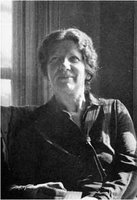 Anzia Yezierska is an early twentieth-century immigrant Jewish American writer of Eastern European decent. Her stories and novels (and ficitionalized autobiography) center in the lives of first- and second-generation Russian Jewish immigrant women who struggle against religious, ethnic, and gender oppression and discrimination to build an America they can live with and in. She writes with high emotion in Yiddish-accented English of impoverished yet ambitious New York ghetto Jews, with liberal fervor, pleasure, and pain.
Anzia Yezierska is an early twentieth-century immigrant Jewish American writer of Eastern European decent. Her stories and novels (and ficitionalized autobiography) center in the lives of first- and second-generation Russian Jewish immigrant women who struggle against religious, ethnic, and gender oppression and discrimination to build an America they can live with and in. She writes with high emotion in Yiddish-accented English of impoverished yet ambitious New York ghetto Jews, with liberal fervor, pleasure, and pain.I love her work because it is earthy, intense, and witty. Though I rarely find her completely “honest” in her depiction of self or other, I am swept up in her “Old World” emotionalism and zeal for justice and equality.
This quotation, from her first novel Salome of the Tenements, speaks to me, for example, perhaps as a descendent of the author in spirit: “I am a Russian Jewess, a flame—a longing. A soul consumed with hunger for heights beyond reach. I am the ache of unvoiced dreams, the clamor of suppressed desires. I am the unlived lives of generations stifled in Siberian prisons. I am the urge of the ages for the free, the beautiful that never yet was on land or sea.”
And I also share some of the guilt and anxiety of Yezierska’s “Salome” (aka Sonya Vrunsky), who asks: “Why do I feel guilty when I’m happy? […] Is it because I’m a sentimental fool? Is it the craziness of Russian youth that feels a secret shame at happiness?”
Thus, I'd like to imagine that it is at times said of me, “Those Jewish intellectuals—those chaotic dreamers are a mystery to me.”
Does this ring true, or am I having delusions of the grandeur of my Russian Jewish heritage?
3.10.2006
A Few Words for Don Knotts
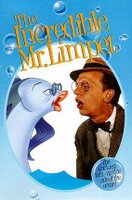 (1964) was, I thought, a very cool movie when I was little. I was only two when it was released, so I’m guessing I saw it on TV at some point. But it stuck in my memeory because it went from live action to a cartoon, with Knotts as Henry Limpet the man and bespectacled fish version of himself. The fish looked remarkably like Knotts, too. I don’t remember the plot, though.
(1964) was, I thought, a very cool movie when I was little. I was only two when it was released, so I’m guessing I saw it on TV at some point. But it stuck in my memeory because it went from live action to a cartoon, with Knotts as Henry Limpet the man and bespectacled fish version of himself. The fish looked remarkably like Knotts, too. I don’t remember the plot, though.Plot was more memorable in The Ghost and Mr. Chicken, which I think I saw annually around Halloween in grammar school for several years. It was the perfect combination of pseudo-scary and silly, and it got us out of class and into the auditorium, so I associate the film with good feeling and a great holiday. I remember a lot of physical humor, with Knotts shaking and stuttering amply, letting us tots feel extra mature and brave by comparison with this childlike man.
I came to The Andy Griffith Show much later. It plagued my youth, interrupting (or so I interpreted it) perfectly good Cubs games on WGN (the actual appearance was because of rain delays, but I mostly saw it as an inappropriate imposition—I couldn’t sit through it to get to the break in the rain, if it came, and I’d end up simply watching something else or turning off the TV). I’ve already blogged about this last September, but I’ll quote the Knotts/Barney Fife parts again here:
“I suppose my greatest pleasure in the series comes from the fact that my husband and I have developed a way of watching the show through pop psychology. We read Andy as an 'enabler' (or rescuer). Andy keeps the status quo going beautifully in Mayberry, from the easy-going charm of it all to Otis's alcoholism to Barney's pathological overcompensation for pipsqueaky ineptitute. Episode after episode has Andy saving Barney's ass with a loving smile, excusing everything from his bungling to his powermongering and even trying to make him look more competent than he ever is. And Andy rescues and enables even when Barney's actions threaten Andy's livelihood or his very life. Given that, without a doubt, Barney is a pretty realistic and still-timely portrayal of those scary-ass small-town officers who thrive on treating others like crap to make themselves feel adequate all across this great nation of ours (wow, sounds like Dubya, don't it?), it can be downright painful to watch Andy keep puffing him up when he should remain deflated awhile...or forever. But somehow it's addictive. The pleasure is knowing what will happen every episode, that everything will be 'all right' in this safe little white Southern town... If I think too much about it, it's appalling. But just before bed it can put a ridiculous smile on my face that I should certainly not be admitting to.”
Reviewing Mr. Knotts' page on IMDB let me see just how many guest appearances he made on television programs and films throughout his life. He's been steadily doing voiceovers and guest appearances steadily through 2005, which is more than most actors can say. So, my son got to hear his voiceover at age 80 as Mayor Turkey Lurkey in Chicken Little even as we watch Andy Griffith reruns together in the evenings. A boy born in Tennessee, my son has none of my Chicagoan prejudices against the show, and though he prefers cartoons and superheroes, he does "sort of" like it, for its "couple of funny parts" -- especially Barney. Perhaps we'll rent The Ghost and Mr. Chicken next Halloween to see how it holds up.
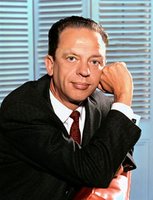
RIP and shake the heavens with self-effacing mirth, Mr. Knotts. Or reincarnate into the next higher lifeform: like Marty Feldman and others of your ilk, your willingness to play the fool with such serious dedication is certainly a form of generous humility that merits rewards beyond this lifetime.
3.05.2006
Dallying with Darby O'Gill
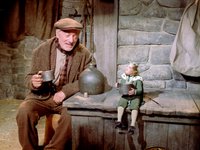
I’d never seen the film, and was enchanted by its combination of:
*stereotypical Irish accents so thick my son leaned over several times to say “What are they saying?” “Can you understand it?” “I can’t figure out a word of what they’re saying”;
*the charming studio-lot Irish village, complete with friendly yet stern-when-he-needs to be village Priest in full garb; big dumb lug types hassling old alcoholics in the town tavern;
*meddling old lady (Sheelah Sugrue, played by the fabulous Estelle Winwood of The Cabinet of Dr. Caligari, Camelot, The Producers, Murder by Death and more sitcoms and detective series on television than you can shake an old-lady stick at);
*obligatory bonnie young lass (Janet Munro) of independent yet entirely normative nature;
*delightful giddy “little people”—all somehow male—dancing their lives away in an awesome cave within a mountain;
*and grizzled, classically trained lead actor (Albert Sharpe as Darby O’Gill) that could distort his face with acrobat agility Cirque du Soleil would be proud of.
Now that’s the cynical me, of course, and there’ll be more of that momentarily. I will pause, however, to say a few truly positive words:
*the special effects stood up remarkably well to the test of time, with the banshee actually scaring my son and the blue screen work marvelous throughout;
*the relationship between Darby and Brian, the King of the Little People (Jimmy O’Dea), was incredibly rich; the two men were “worthy adversaries” and convinced the audience well of their genuine affection as well as macho one-upmanship;
And some film analysis:
Most fascinating to me was the male-male scenes. Though a fantasy and a romance story, the film is also about how men relate to other men. In addition to the aforementioned Darby-King Brian friendship, Darby also had a warmth with his employer, Lord Fitzpatrick (Walter Fitzgerald). Both relationships involved competitiveness and disagreement, illustrating how male friendships must be kept from any hint of homoerotic (or even homosocial) quality by involving conflict as well as closeness.
Similar was the tension among the younger male rivals, Connery’s Michael McBride and Pony Sugrue (Kieron Moore), but in this case it involved what Steve Neale (mentioned in other blog entries on male-centered films below) discusses as scenes of aggression between men that both deny yet present repressed homosexual desire—and invite the audience’s gaze upon it. As the film ends, Darby O’Gill has returned to the living from the Death Coach’s door, his daughter is well and in the arms of her beloved Michael, and all is right with the world. But we can’t end there: Michael and Darby must go to the tavern where he must prove his meddle against the bully Pony. As Michael is pummeled by Pony, Darby and the other regulars—including barmaid Molly Malloy (Nora O’Mahoney)—gawk away, cringing yet prevented by the wise Darby from intervening. Men need to have these confrontations, and we, apparently, need to watch them. Of course, in the end, Michael wins, handily, and his mother Sheelah is the only one to comfort him.
Because I can’t leave this post without a final immature swipe, I must say I found the teeth in this film hard to watch (or to look away from). Between Darby’s missing upper choppers and crooked, yellowed bottom row and Connery’s hideous cap job, I found myself marveling at how long Hollywood has been tooth-obsessed. With updates in Austin Powers and constant tooth-whitening ads alongside movie stars whose mouths seem to glow in the dark with their expensively bleached and over-polished whiteness, it was fascinating to have this film remind me that Holywood’s always insisted on ridiculously “perfect” teeth, even when it lacked the technological/medical means to have them.
3.03.2006
Reviewing the Best and Worst of The Aristocrats
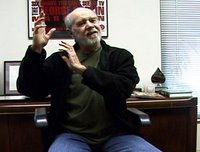
WARNING: MATURE CONTENT. GROSS LANGUAGE AND DESCRIPTIONS.
I won't deny it. I have very mixed feelings about Provenza/Gillette’s The Aristocrats. A busy life kept me from remembering to rent the DVD for some time, but this week my husband brought it home and we finally watched it. Here's my breakdown:
GREAT
The importance of taking advantage of First Amendment Right to Free Speech in the making of this film—especially the shots of the father’s telling the foulest parts of their versions of the jokes to their infant sons—that was just so “wrong” and its “wrongness” was what was most “right” about this film.

My favorites: The mime version of the joke. Judy Gold's pregnant version.
GOOD
The analysis of why this joke is a comedian insider joke. The joke’s not particularly funny except among comedians. The genuine laughter at moments was wonderful.
 Chris Rock’s analysis of why Black comedians don’t tend to tell the joke: we expect Black comedians to tell dirty jokes, and this one just isn’t that shocking, except, arguably, to middle-class white people. I’d put this aspect in the Great column, except that (1) being white and middle class, I really wanted to hear Rock’s version and (2) Whoopi Goldberg was the only other Black comedian in the entire video and, though her version was absolutely hysterical (foreskins pulled up over heads as they sang!!), she did not adequately fill my desire to see a more diverse cast of comedians presented.
Chris Rock’s analysis of why Black comedians don’t tend to tell the joke: we expect Black comedians to tell dirty jokes, and this one just isn’t that shocking, except, arguably, to middle-class white people. I’d put this aspect in the Great column, except that (1) being white and middle class, I really wanted to hear Rock’s version and (2) Whoopi Goldberg was the only other Black comedian in the entire video and, though her version was absolutely hysterical (foreskins pulled up over heads as they sang!!), she did not adequately fill my desire to see a more diverse cast of comedians presented.
FAIR
As I just noted, how about some Variety?! Dump the horrid ventriloquist guy and trim a few others and you’d have time for more women, comedians of color, and other kinds of difference. Amazing cast of Jewish comics, but it gives the illusion that that’s all that’s going on in stand-up, and it ain’t. Provenza and Gillette could have dug a lot deeper and presented more new, non-whiteboy comics, surely.
POOR
Filming. Horrid camerawork throughout, annoyingly amateur in a number of scenes.
Several poor, pointless versions of the joke. Steven Wright’s version of the joke was high on my list of bad versions. Where is the creativity in some of these takes? How many times can we hear about sodomizing young children, dog sex, and scat without just getting bored?
Moments of forced/fake laughter. Come on, y'all, we're not that stupid.
Cutting out Ron Jeremy’s poem/rap version of the joke (see DVD extras). Why??
OTHER
Too bizarre for words was the mime act of an abortion (on the DVD extras). Troubling politically, psychologically disturbing (that this mime thought through his presentation so meticulously was very creepy). And why is a male mime doing an abortion? Just shock value? I doubt you'll think that if you see it. I hated it but couldn’t look away.
MY VERSION OF THE JOKE After listening to all the repetitive boring versions, I’d definitely go more for either the meta-joke (the joke that is a critique/twist of the joke, like Sarah Silverman’s “Joe Franklin raped me” version, the “we already have an act like that” take, or the one where a polite and elegant act is called “The Cum-sucking Twats”) or add some new kinky flavors to it. How about the boy being hoisted on meat hooks above the floor so when he shits it splashes the first three rows of the audience? or the family painting themselves ritually with their daughter's first menstrual blood then doing the hora around a goat fucking a chicken? maybe a bit too Jewish...
After listening to all the repetitive boring versions, I’d definitely go more for either the meta-joke (the joke that is a critique/twist of the joke, like Sarah Silverman’s “Joe Franklin raped me” version, the “we already have an act like that” take, or the one where a polite and elegant act is called “The Cum-sucking Twats”) or add some new kinky flavors to it. How about the boy being hoisted on meat hooks above the floor so when he shits it splashes the first three rows of the audience? or the family painting themselves ritually with their daughter's first menstrual blood then doing the hora around a goat fucking a chicken? maybe a bit too Jewish...
3.01.2006
RIP Octavia Butler
I devoted a big part of my dissertation to her work back in the early 90s. From that work, I published an article on her superb story "Bloodchild" in African American Review in 1994. The story deals with alien-human relations on a faraway planet that have master-slave, human-animal, and fascinating race/gender implications. Though old and not my very best work, my article does express how rich I find the story. You can read the article here.
For first-time readers, I recommend "Bloodchild" and her breezy yet potent novel Kindred, about a contemporary woman who is thrown back and forth in time to save the life of her white (future slave master) ancestor. Her Xenogenesis Trilogy is also worthwhile, starting with Dawn, in which aliens called Oankali offer to save the remants of humanity after a global nuclear war if, and only if, they "gene trade" (i.e. mate only via gene mixing with the aliens -- no more pure-bred humans). Earlier, she penned five novels in her Patternmaster Series, about mentally powerful beings from the 18th-century (healer Anyanwu and body-vampire Doro in Wild Seed) to the present day (Mind of My Mind and AIDS-suggestive Clay's Ark). I'm not a fan of her more recent Parable series, about a young girl in an evironmentally ravaged near-future U.S. who creates her own religion (with a core of "God is Change"), but it has its fans. I have yet to read her newest, Fledgling, a vampire novel, but it's on my to-read list.
Writing older man/younger woman romances that never rang true and fell prey to sexist stereotypes, failing to offer LGBT options in her worlds, and too conservative for me despite being one of the only African American feminist writing science fiction, Butler's work has always been a complex, difficult read for me. But her writing inspired my dissertation and I thank her for that. And she was a fascinating person when I met her and shared a seat on a fan convention panel with her back in the 90s. I argued humanity should be kept glued to this planet so we don't foul up the universe; she argued the only way we'll evolve is to leave Earth behind. Despite the disagreement, I enjoyed her presence.
RIP

